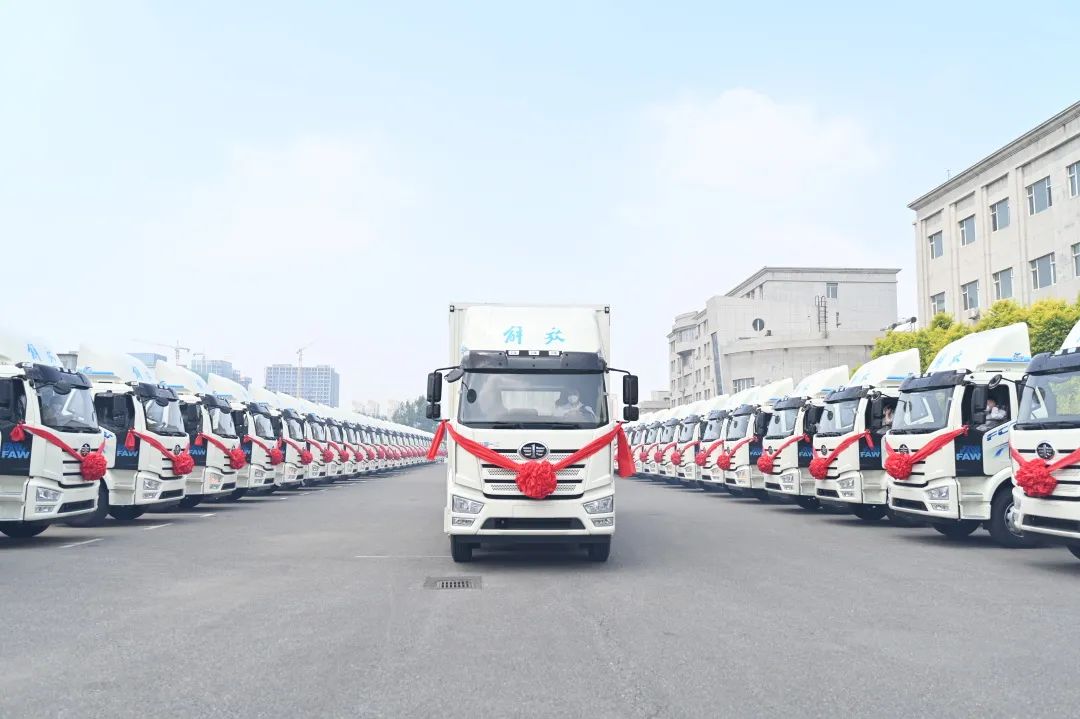FAW Jiefang has delivered 300 hydrogen fuel cell vehicles for urban logistics and short barge transport in Shanghai, Beijing, and China's Shanxi province. The company, which is the largest manufacturer of heavy trucks in China, claimed the fuel cell engines have a peak efficiency of 60%.
Yunnan University researchers and scientists from Shanghai Lixin University of Accounting and Finance have released a report claiming that liquid organic hydrogen carriers (LOHC) are among the most important emerging hydrogen storage materials of recent years. The report, published in Frontiers in Energy Research, noted that proton-exchange membrane fuel cells (PEMFC) have “stronger development momentum,” followed by solid oxide fuel cells (SOFC). The researchers said the technological solutions with the highest combined utility value are hydrogen-inorganic salts-SOFC, hydrogen-carbon nanomaterials-SOFC, and hydrogen-metal hydrides-SOFC.
AEG Power Solutions has revealed that it will deliver eight Thyrobox DC-3 systems to Siemens Energy. The DC systems, each consisting of four power modules, will provide power for hydrogen production at the CEOG (Centrale Électrique de l'Ouest Guyanais) project. It described CEOG as the “world's largest power plant,” combining PV with up to 128 MWh of green hydrogen energy storage in French Guiana. The hydrogen yield of 860 tons per year will be produced by a 16 MW electrolysis platform, stored under pressure in hydrogen storage tanks. AEG Power Solutions claimed that by the second quarter of 2024, the plant will start providing 24/7 electricity via high-power fuel cells in a reverse electrolysis process at a competitive price to local thermal power plants.
Ceres Power has agreed to deliver a megawatt-scale solid oxide electrolyzer (SOEC) demonstrator to a Shell facility next year in Bangalore, India. The UK company said it aims to produce hydrogen at efficiencies ranging up to 90%, partly by using waste heat in industrial processes. Shell said the pilot will help to turn SOECs into a commercially mature technology on an industrial scale.
Linde claims that its newly completed hydrogen train refueling station in Bremervörde, Germany, is one of the biggest such facilities in the world. Fourteen Alstom trains will use the station to travel through Lower Saxony. Linde and Alstom are set to discuss the filling station and the trains in a webinar on June 29.
Siemens Mobility said it has secured its first order for a fleet of trains based on hydrogen technology from Niederbarnimer Eisenbahn. It will deliver seven two-car Mireo Plus H trains for the Heidekrautbahn network (RB27) in the Berlin-Brandenburg metropolitan region in Germany.
Shell has formally accepted two BASF technologies to purify and dehydrate the product hydrogen stream from the water electrolysis process. “The Puristar and Sorbead technologies are now in Shell's portfolio for potential use in Shell's global green hydrogen projects,” said BASF.
The European Investment Bank (EIB) has agreed to provide €50 million ($52.6 million) to finance the research and decarbonization activities of Italy's Panariagroup Industrie Ceramiche. “These innovative technologies will make it possible to use renewable energy sources, such as biofuels and green hydrogen in ceramic furnaces, as an alternative to methane gas,” said the EIB.
Electric Hydrogen (EH2) has announced $198 million of financing to support its efforts to make cost-competitive, fossil-free hydrogen. The Boston-based company said that its strategic investors include Amazon's Climate Pledge Fund, Cosan, Equinor Ventures, Honeywell, Mitsubishi Heavy Industries, and Rio Tinto.
This content is protected by copyright and may not be reused. If you want to cooperate with us and would like to reuse some of our content, please contact: editors@pv-magazine.com.



By submitting this form you agree to pv magazine using your data for the purposes of publishing your comment.
Your personal data will only be disclosed or otherwise transmitted to third parties for the purposes of spam filtering or if this is necessary for technical maintenance of the website. Any other transfer to third parties will not take place unless this is justified on the basis of applicable data protection regulations or if pv magazine is legally obliged to do so.
You may revoke this consent at any time with effect for the future, in which case your personal data will be deleted immediately. Otherwise, your data will be deleted if pv magazine has processed your request or the purpose of data storage is fulfilled.
Further information on data privacy can be found in our Data Protection Policy.